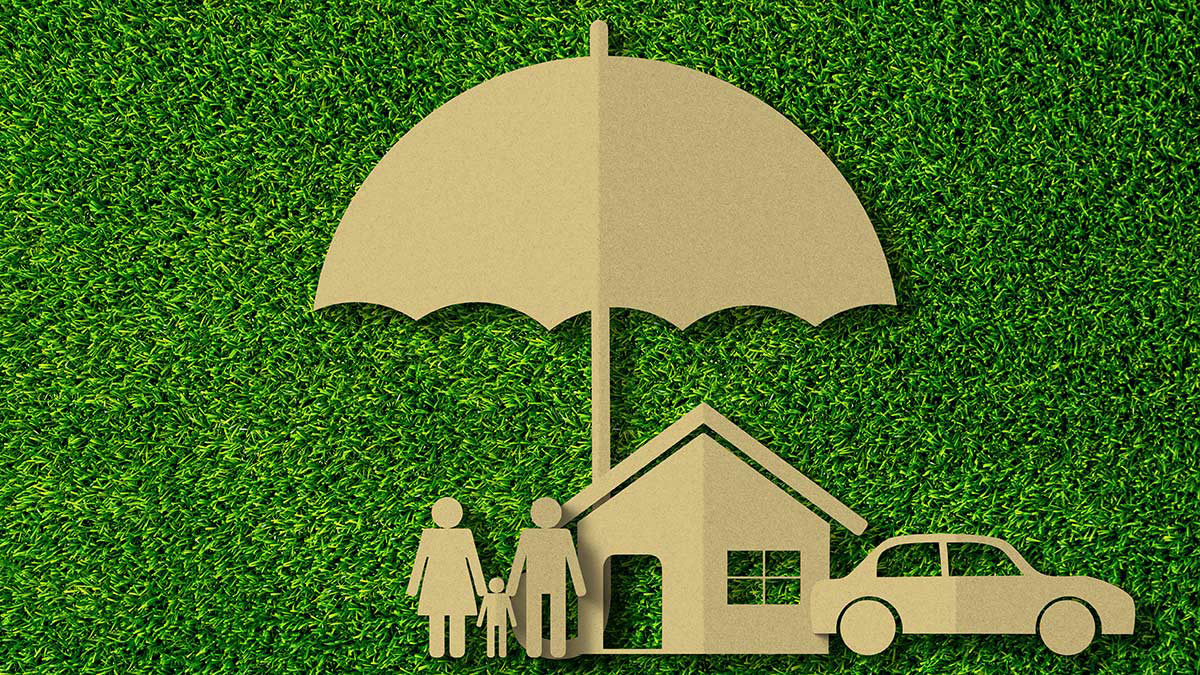Get our independent lab tests, expert reviews and honest advice.
Income protection insurance in super: What is it?

Need to know
- Income protection is, in most cases, an 'add on' to the insurance you automatically get in your super
- It generally provides up to 75% of your income if illness or injury temporarily prevents you from working
- It usually does not provide a benefit for people who are unemployed, casual or working part-time
What is income protection insurance?
Income protection insurance sounds like it’s there to provide you with financial support any time you lose your income, but this isn’t the case.
It won’t, for example, pay you out if you lose your job because of the economic disruption caused by COVID-19. It only pays a benefit where you can’t work because of an illness or injury.
Alexandra Kelly, director of casework at Financial Rights Legal Centre (FRLC), says this issue has come up with the centre’s clients. “We’ve had a few people ring who have spoken to the insurer to see if (a COVID-19-related job loss) is a claimable event because they didn’t understand income protection is about disability and not just a redundancy protection,” she says.
It won’t pay out if you lose your job because of the economic disruption caused by COVID-19
Instead, it pays you a benefit in more narrow circumstances, when injury or illness prevents you from working temporarily.
Most people get total and permanent disability (TPD) insurance automatically in their super. This is designed to provide financial assistance when you can’t ever work again because of illness or injury. Income protection insurance is more for short-term injuries or illness.
Regular payments
You can, however, get regular payments from your income protection insurance while you wait for your TPD lump sum. Income protection insurance can also be useful where what initially appeared to be a short-term injury is later diagnosed as permanent.
Instead of a lump sum, income protection generally pays you on a monthly basis to cover part of your lost income.
Super funds have different names for income protection insurance. It may be called salary continuance insurance, temporary salary continuance or total but temporary disablement.
When income protection in super will and won’t provide a payout
YES: Injury that occurred playing sport outside of work
Any other injury or illness that is temporary and keeps you out of work for some time but that you can’t get another benefit for
NO: You lose your job because of COVID-19
You are a contractor and your income dries up because of COVID-19
DEPENDS: You suffer an injury or illness at work (these aren’t excluded, but any payment you get from worker’s compensation will cancel out your income protection insurance)
You are injured in a car accident (these aren’t excluded, but any payment you get from other insurance will cancel out your income protection insurance)
Would income protection insurance be useful for me?
If you’re trying to determine if this kind of insurance is worth the cost, here are some things to consider:
How much it will eat into your retirement savings?
The Productivity Commission found that some people were automatically being signed up for income protection insurance that they couldn’t claim on. The Commission called this insurance “the chief and costly culprit for such ‘zombie policies'”.
On average, this cover costs a person $25,000 from their retirement balance over the course of their working life.
It will only protect you in a limited set of circumstances
Despite its name, income protection only provides financial support when you suffer an injury or illness that means you can no longer earn an income.
If your work is categorised as a ‘hazardous occupation’, this may limit your cover.
It isn’t an unemployment benefit, nor a safety net protecting against redundancy.
It won’t pay you a benefit indefinitely
Even if your disability is still preventing you from returning to work, many policies stop providing benefits after two years. In some cases you can choose to pay higher premiums to get cover for longer.
How soon you can claim
You generally won’t be able to claim a benefit on this cover until you have exhausted your sick leave. Whether you can use annual leave varies. If you’ve got a lot of leave built up, you may be able to choose cover with a longer waiting period and save money on premiums.
Changes to your cover over time
Major life events like changing a job or buying a property are a good opportunity to review your cover.
Also, if your salary increases, you may need to apply to your fund to increase your cover accordingly.
Pre-existing conditions
One major advantage of default insurance in super is that, unlike other types of insurance, it’ll cover pre-existing conditions. Note that this won’t necessarily apply to any additional cover you choose to take out.
Does this insurance replace all of your lost income?
Generally, any payout you receive will replace 75–85% of your pre-disability income.
In some cases, 10–15% of your monthly benefit will be paid as contributions into your super rather than money that you can use for day-to-day expenses.
Even if you’re paying multiple super funds for this insurance, these policies usually operate so that you can only claim from one. The Financial Rights Legal Centre has noted that their clients often don’t realise these clauses are in the policies, or how they work to limit how much you can claim.
“Offsetting against other income protection policies is very common,” says Kelly. “It’s very unlikely you will get more than 75% of your pre-disability income.”
It’s very unlikely you will get more than 75% of your pre-disability income
Alexandra Kelly, director of casework, Financial Rights Legal Centre
There’s also normally a waiting period that applies, so you won’t be getting paid insurance benefits as soon as your disability prevents you from working. 30 days is a common waiting period, though some funds offer a shorter wait if you upgrade your cover.
Any other sources of income you are entitled to can also reduce your income protection insurance benefit. If you’re eligible for a payment from Centrelink while out of work, for example, this can reduce your insurance benefit.
Similarly, if you receive any workers’ compensation payments, this will reduce the income protection insurance you get by the same amount.
Calculation problems
Calculating how much income you had before you became disabled (and thus how much benefit you are entitled to) isn’t always straightforward. This can lead to disputes and delays.
“There are a lot of problems around how (insurers) calculate your pre-disability income, particularly for people who start to get unwell and start to ratchet down their days before they trigger being totally disabled,” explains Kelly.
“A ratcheting down period where someone worked less because of the disability is counted as part of the pre-disability income.”
People who are employed in seasonal jobs, contractors and those with uneven earning patterns may also find their benefit is only based on their most recent income. This may be frustrating if their last year was a lower earning period.
Can anyone get income protection insurance?
It’s generally available to super members aged 15–65 years, though some funds offer it for members aged up to 70.
With most super funds, you need to be working a certain number of hours, or making a certain amount of money per year, to be eligible.
There are usually restrictions based on what work you do. If your job falls into a list of ‘hazardous occupations’ agreed upon by your super fund and its insurer, you mightn’t be eligible to get this cover or you may have to pay higher premiums.
It’s worth checking if you’re in one of these occupations before taking out this cover as many of the occupations don’t seem that dangerous, for example DJs, actors and authors.





